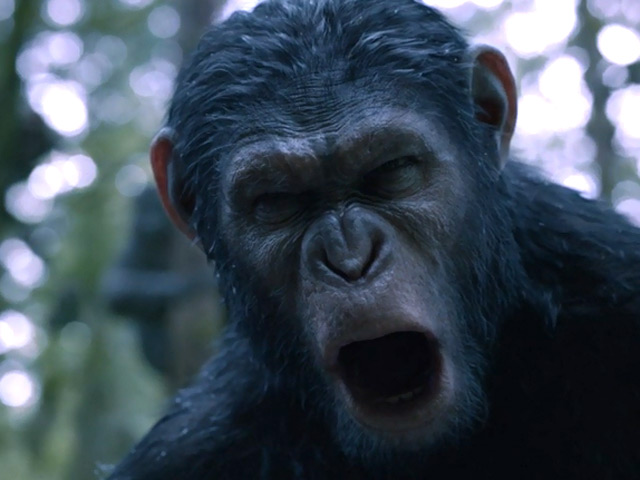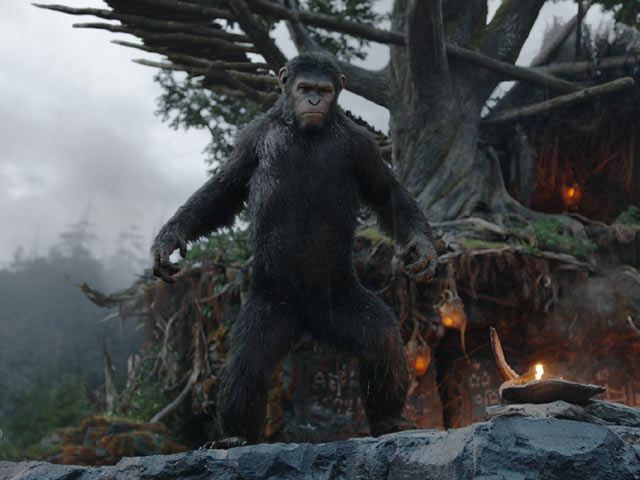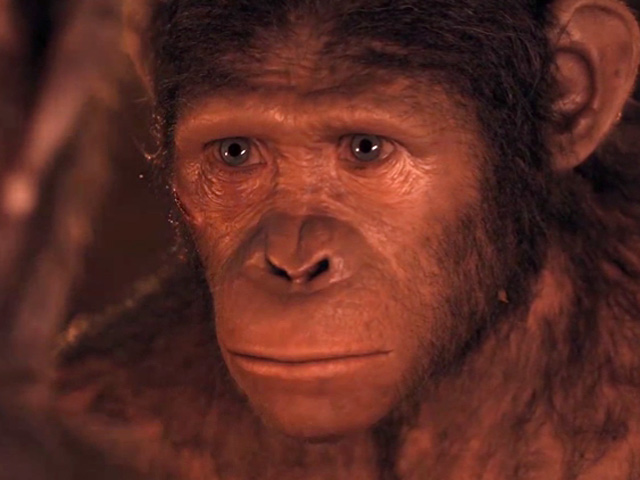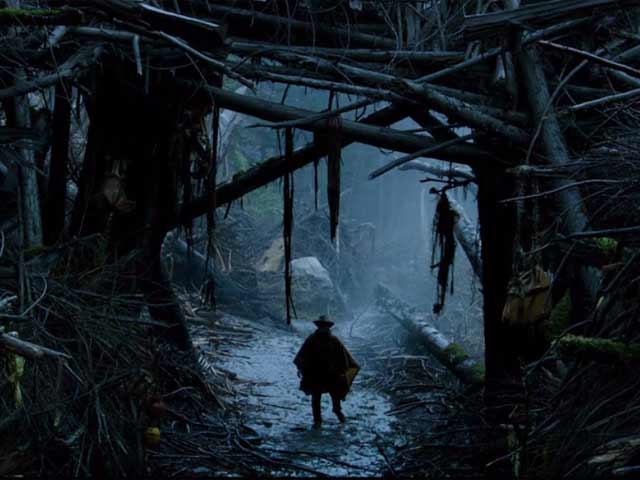Director Matt Reeves (Cloverfield) ramps up this reboot franchise with a strikingly well-written action-drama, which takes an unusually complex route through the story. By refusing to have any simplistic villains, the film encourages viewers to see all sides of the conflict, which draws out vivid emotions and some unusually relevant political themes. It's also a technical triumph, obliterating the line between animation and actors.
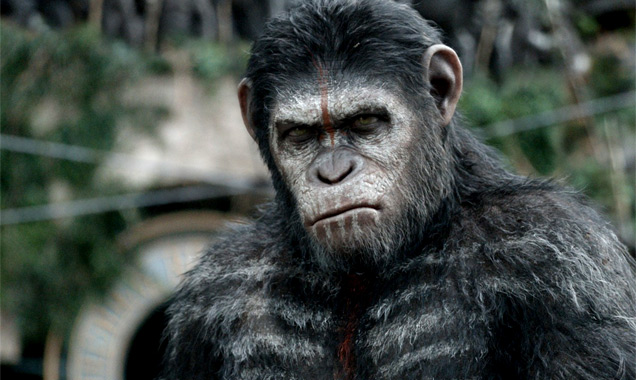
It's been 10 years since the events of 2011's Rise of the Planet of the Apes, and Caesar (Andy Serkis) has built a thriving ape community in the woods north of San Francisco. They haven't seen any humans in years, since the simian flu has killed all but one in every 500 people. But there's a tenacious group of human survivors in the city, and when Malcolm (Jason Clarke) and his team venture out to search for a source of hydroelectric power, they run into the ape community. Both Caesar and Malcolm are willing to talk about cooperating, but Caesar's second in command Koba (Toby Kebbell) finds it impossible to trust men after they so viciously tortured him as a young chimp. And Malcolm's sidekick Carver (Acevedo) is more than a little trigger happy, as is the community's leader Dreyfus (Oldman) back in the city.
Instead of concentrating on the conflict between apes and men, the film's perspective is through their family units. Caesar's mate Cornelia (Judy Greer) has just given birth to a son, while their older son Blue Eyes (Nick Thurston) struggles to make sense of the clash between humans and apes. Meanwhile, Malcolm's scientist partner Ellie (Keri Russell) and his observant teen son Alexander (Kodi Smit-McPhee) offer similar emotions from the human side. The script's clear suggestion is that the next generation may offer more hope for understanding, which makes the stakes startlingly high as violence threatens to break out. Indeed, the film is a bracing exploration of how our decisions today will affect our future.
Continue reading: Dawn Of The Planet Of The Apes Review









![Luke De-Sciscio talks to us about having the courage to be yourself, forgiving that which is outside of one's control and following whims [EXCLUSIVE] Luke De-Sciscio talks to us about having the courage to be yourself, forgiving that which is outside of one's control and following whims [EXCLUSIVE]](../images.contactmusic.com/images/home/homepage/luke-de-sciscio-abof-a.jpg)

